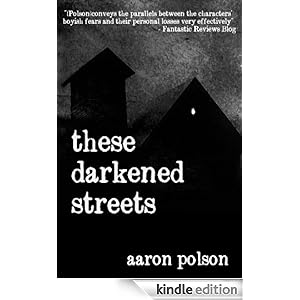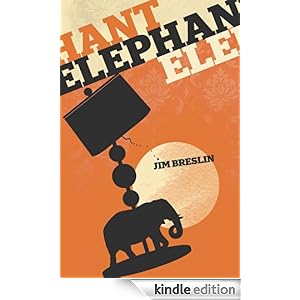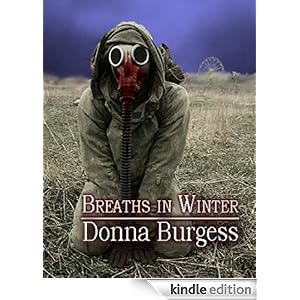Horror fiction often disappoints me, as the suspense and dread rises, but then you see the monster, and...is that it?
This immediately made me think of Stephen King's wonderful non-fiction book Dance Macabre where he makes a similar point about horror - you throw open the door to reveal the monster and the reader thinks 'A ten foot ant! Yikes quite scary! But I can cope with that... Now a 100ft ant, that would be scary...' But of course, if what was behind the door was a 100ft ant, the reader would be thinking: Scary! But I can cope with that...

The image I have in my own head is of a jack-in-the-box - as a horror author, you better have something good springing out of that box. (And that thought always makes me hum this song, but anyway).
All of which has got me thinking, what are the different ways horror authors solve this problem? Seems to me it's these:
1. Pretend There Isn't A Problem
Maybe, if you're a really skilled author, and having a really good day, you can still get away with writing a story where the big reveal is basically "Boo! It's a vampire!" Maybe.
2. Monster With A Twist
This one is quite common - vampires that turn into a snake not a bat, zombies that run etc. It can be done well - vampires have been reinvented scores of times, the most recent high-profile case being Let The Right One In. When it's done well it works - the twist creates a frisson of shock, and allows creatures grown dusty with familiarity to be scary once more. But it's damn hard to do, and one suspects there's more failures than successes. Do it badly, and it's apt to seem to the reader like a cheap gimmick rather than anything they should react to, let alone be scared by.
3. Invent A New Monster
If ghosts, werewolves, vampires, aliens and zombies (and alien zombies) are all seeming too stale, then the best thing to do is invent a new monster, no? The reader can't have a jaded reaction to something they've never encountered before can they?
Well no. But there's little new under the sun. Dance Macabre time again (and if you read or write horror and haven't a well-thumbed copy of this on your bookshelf then you really need to examine your life choices up to this point) - King talks about the books Psycho and The Strange Case of Dr Jekyll and Mr Hyde as werewolf novels. Werewolf novels?
Yes, because the really scary thing about werewolves isn't the teeth or fur, but the fact that those guys walk around most of the time looking just like you and me. As does Norman Bates when he's not in his dead mother's dress; as does the respectable looking Mister Hyde. The scary thing is they look normal but can change.
So if you want to create a new monster for your story, be careful. In reality, this method is likely to be identical to Number 2.
4. Only Partially Reveal Your Monster
Now we're talking. I do this one quite a lot - letting the reader glimpse the thing out of the corner of their eye, throwing in some choice description but leaving most to the imagination. The idea being, if the unknown is what's scary, keep it a bit unknown. Lovecraft was a master at this - how many of us could really say exactly what Cthulhu looks like?
Be wary though - if done clumsily this approach can seem to the reader to be a cheap trick.
5. Ambiguity #1: Call Into Question Just What The Real Monster Is
Just because you've revealed what everyone thinks the monster is, it doesn't mean they're right. Maybe it's just an aspect of the real Big Bad. Think Ghost Story by Peter Straub which gets all sorts of ghosts and monsters and scary kids roaming around, but they're all just reflections of the real monster... and of ourselves. You can keep the tension tight if the reader is never sure which reveal is the big one.
6. Ambiguity #2: Call Into Question If The Monster Is Even Real
Another one I really like. What if it's all in the protagonist's head? Isn't that more scary than a monster, in some ways - especially if you're not sure? The obvious example here is The Turn Of The Screw (ghosts are the perfect monster for this type of horror) but it doesn't have to be as overt as that; a lot of horror can be read in this way.
7. Make The Monster Relevant To The Characters
There's tons of good examples of this one, but to pick a familiar one: in The Exorcist the priest has to determine whether the girl is really possessed by a demon, or just faking or suffering some psychological trauma. But here's the turn of this screw: the priest is losing his faith in God. But if the demon is real, if Evil with a capital E is real, then surely Good with a capital G is too? The priest almost wants the demon to be real... (which dovetails nicely with technique 6. above).
8. Don't Have A Monster
Guess what? Horror doesn't need a monster. Horror needs dread, unease, fear; horror needs... well horror. And a good author can generate this without a bogeyman. To end with an example of my own, A Writer's Words in my collection The Other Room has no psycho-killers, no mutants or mummies. What it does have, hopefully, is a creepy sense of unease as an almost existential situation overtakes the main character. And somehow, with this kind of horror story, where there's no monster as such, the reveal can be seamless.
So, fellow horror authors, what do you think? Have I missed any out? In reality of course authors mix and match these approaches to the issue of opening the box, or the door, to reveal what's been lurking.
 In other news, I'm taking part in a 'blog hop' running from 24th to 31st October, where I'll be giving away some books and maybe other stuff if I can work something out. (If you aren't sure quite what a 'blog hop' is, like I wasn't, check out this post from Belinda Frisch, which explains it better than I could.)
In other news, I'm taking part in a 'blog hop' running from 24th to 31st October, where I'll be giving away some books and maybe other stuff if I can work something out. (If you aren't sure quite what a 'blog hop' is, like I wasn't, check out this post from Belinda Frisch, which explains it better than I could.)If you're a fellow horror author (and let's face it, if you've read all of blog post so far there's a good chance you probably are) and want to take part, check out the Coffin Hop webpage.






